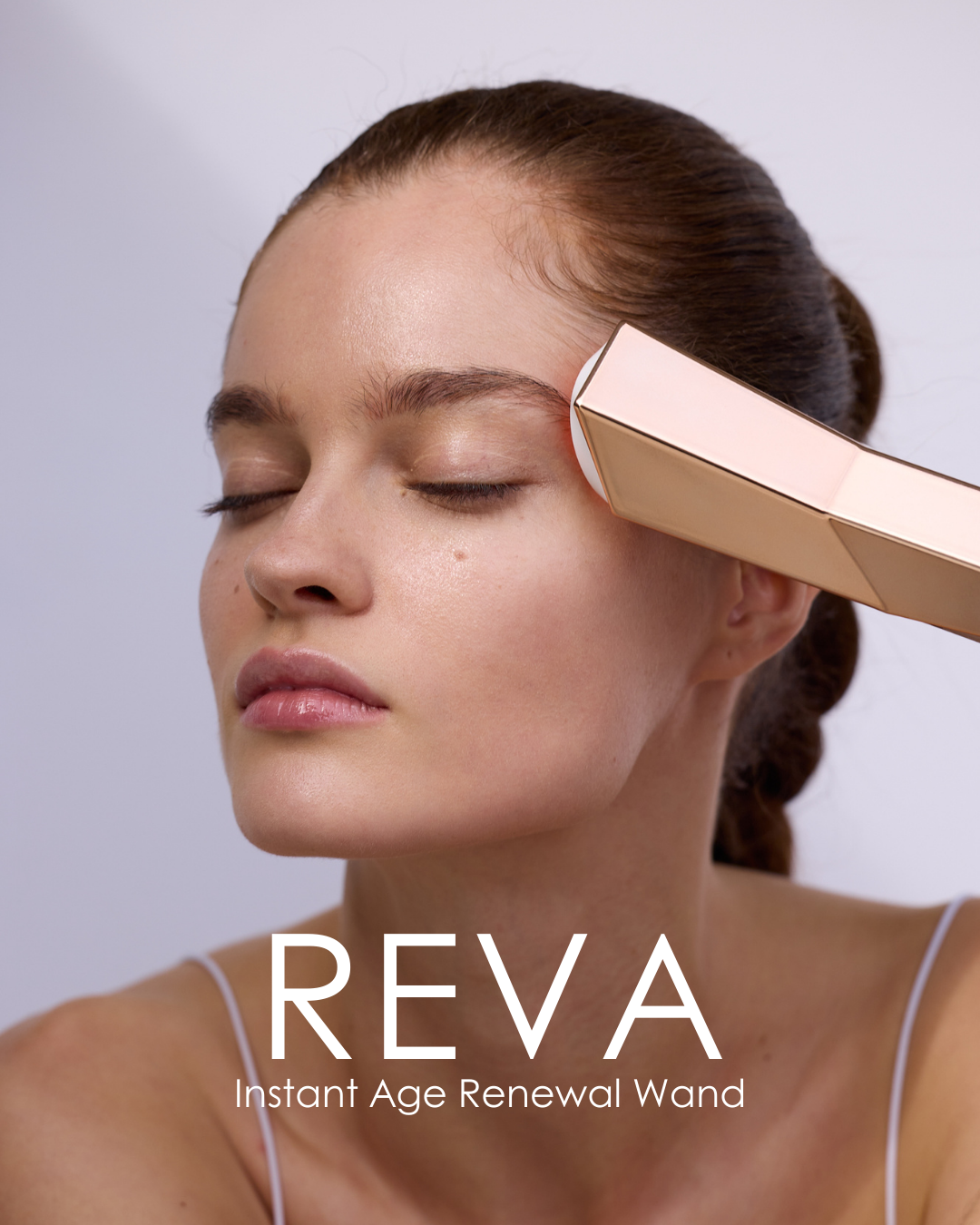
The Difference Between Infrared and Red Light Therapy
Estimated reading time: 7 minutes
IN THIS ARTICLE:
- 01 Firstly, What is Red Light Therapy?
- 02 What is Near Infrared Light Therapy?
- 03 What is the Difference Between Red and Infrared Light Therapy?
- 04 What are the Benefits of Combining Red LED and Infrared Therapy?
- 05 Why is it Important to Address Wrinkles?
- 06 Red and Infrared Light Therapy vs Red Light Only?
- 07 Is LED Light Therapy Safe?
- 08 How to Include Red and Infrared Light in your Skincare Routine?
- 09 The Takeaway
The benefits of red light therapy are well-documented and it comes as no surprise this powerful technology has taken the skincare industry by storm, but many of us are still in the dark about the closely linked and arguably more powerful ‘near-infrared light’ technology. Invisible to the eye, infrared light not only penetrates many skin layers but is seen to target soft and hard tissue and even bone.
So, what are the benefits of near-infrared light, and should we include it alongside red light therapy to bolster results?
Let’s find out.
Firstly, What is Red Light Therapy?
Red light therapy uses red light wavelengths to treat skin issues like wrinkles, inflammation, and acne. Red light activates mitochondria to produce adenosine triphosphate (ATP). This surplus of ATP enhances cell function, supporting various essential bodily processes. By promoting collagen production and improving blood circulation, this therapy aids in skin healing and rejuvenation.
What is Near Infrared Light Therapy?
Near-infrared (NIR) light therapy uses specific near-infrared light wavelengths to penetrate deep into the skin. NIR light, which operates within an invisible spectrum at precise wavelengths, can permeate soft and hard tissues within the body. This therapeutic approach supports tissue repair, diminishes inflammation, and relieves pain and muscle soreness.
Infrared light therapy benefits extend beyond superficial skin enhancement to encompass the treatment of various health conditions, including pain management and rehabilitation.
What is the Difference Between Red and Infrared Light Therapy?
The key difference lies in the depth at which the light penetrates the body. Red LED light therapy primarily works on the dermis and epidermis to target wrinkles, inflammation, and acne by stimulating collagen production and improving blood circulation. On the other hand, near-infrared (NIR) light therapy penetrates deeper into the skin, muscles, joint and bone to promote tissue repair, reduce inflammation, and offer relief for conditions like pain and muscle soreness. It prompts the body’s natural recovery process. Another major difference is NIR is invisible to the human eye.
|
Red LED Light Therapy |
Near Infrared Light Therapy |
|
|
Wavelength |
630 to 660 nanometers |
810 to 850 nanometers |
|
Depth of penetration |
Skin tissue |
Skin tissue, muscle, joints, and bones |
|
Benefits |
Wrinkles and fine lines reduction, improve sagging skin, treat sun damage, faster wound healing |
Muscle healing, infection management, faster wound healing, bone repair and growth |
What Are the Benefits of Combining Red LED and Infrared Therapy?
Combining the treatments caters to a broader spectrum of skin concerns, working on both the surface and deeper skin layers to elevate your skin's vitality and rejuvenation.
- Covers a comprehensive range of skin issues at varying depths
- Red LED tackles visible troubles such as wrinkles and inflammation
- Near-infrared delves deeper, aiding in tissue repair and inflammation reduction
- Boosts overall skin health and revitalization effectively
Why is it Important to Address Wrinkles?
Addressing wrinkles directly is a personal choice, but targeting the appearance of wrinkles has overall skin benefits that go beyond aesthetic concerns. Boosting collagen, elastin and hyaluronic acid with light therapy improves skin health through increased energy and oxygenation.
Wrinkles appear as a result of the natural aging process, sun exposure, smoking, pollution and other environmental and lifestyle factors.
By targeting wrinkles effectively, individuals can improve skin texture, reduce the appearance of fine lines, and promote a more youthful and radiant complexion. Incorporating treatments like red LED light therapy and near-infrared (NIR) light therapy can help minimize the visible signs of aging and support overall skin renewal.
Red and Infrared Light Therapy vs Red Light Only?
If anti-aging is your primary concern, red LED light therapy is a very effective stand alone treatment offering a real improvement in skin health. Red light works in the epidermis and dermis while, as emphasized, NIR penetrates deeper into the skin layers and even beyond this to support tissue repair, inflammation and aid in pain relief. NIR encompasses an overall more regenerative treatment with healing, and aesthetic benefits. If you want a treatment that targets bones, joints, nerves and tissue to help with, for example, recovery after intense exercise incorporating NIR light therapy is a very effective option.
Is LED Light Therapy Safe?
LED therapy, including red and near-infrared light therapy is a very safe skin treatment option. These therapies are non-invasive and painless. However, it is important to conduct research to ensure you are a suitable candidate for light therapy treatment to rule out any adverse effects. If you suspect contraindications may apply to you, consult a professional before embarking on your light therapy journey.
It is also important to use an at-home light therapy device from a reputable brand and to take the time to read reviews, check for certifications, and ensure that the device is of high quality and safe to use. This guarantees that you are investing in a reliable and effective product for your skincare routine.
How to Include Red and Infrared Light in Your Skincare Routine?
Seamlessly integrating your new device into your routine:
- Cleanse to remove dirt, oil, and makeup residue. This will ensure that the light therapy treatments can penetrate your skin more effectively.
- Red LED Light Therapy - start with red LED light therapy. Position the light source at a distance and duration as recommended by the manufacturer. Gently expose your skin to the red light, targeting areas with wrinkles or other concerns.
- NIR Light Therapy - After red light therapy, switch to NIR. Ensure exceed total recommended treatment time with any one device.
- Serum - we suggest something hydrating like hyaluronic acid or niacinamide
- Moisturize - Follow up with a thicker cream product to lock in moisture and further nourish the skin.
Use NIR and Red light concurrently with our Lumamask Pro.
Lumamask Pro | LED Light Therapy Face Mask
Most advanced anti-aging + anti-acne light therapy treatment combining red, infrared and blue for deep skin renewal
The Takeaway
Incorporating red LED light therapy and NIR light therapy into your skincare routine can be a powerful combination that enhances anti-aging and rejuvenation effects, among many other benefits.
By using red LED light therapy, you can target common skin concerns like wrinkles, sagging skin, and dullness. NIR light therapy, on the other hand, penetrates deeper and provides healing benefits to muscles, joints, and even bone tissues.
It's important to note that combining these two therapies is safe, with no additional risks compared to using them individually. Additionally, it's easy to incorporate them into any skincare routine as a treatment step, which can be done up to four times per week for optimal results.

written by Olivia Khader
















Leave a comment
This site is protected by hCaptcha and the hCaptcha Privacy Policy and Terms of Service apply.